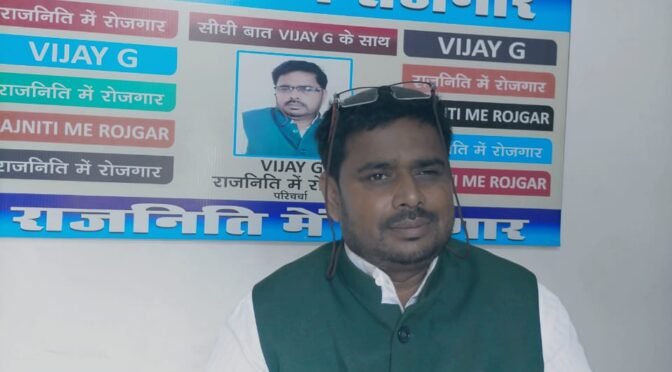Introduction
Vijay G has emerged as a significant figure in the realm of political thought and election management services. His work bridges the gap between philosophical insights and practical electoral strategies, fostering a deeper understanding of democratic processes. This essay explores Vijay G’s contributions as a political thinker and philosopher, particularly focusing on election management services.
Background
Vijay G’s academic journey has been marked by a rigorous exploration of political philosophy, ethics, and governance. His educational background in political science and public administration laid the groundwork for his critical examination of electoral systems and their societal implications. He has authored numerous papers and books that reflect his comprehensive understanding of political dynamics and democratic principles.
Theoretical Framework
At the core of Vijay G’s political philosophy is the belief in democracy as a foundational element of a just society. He argues that effective election management is crucial for the legitimacy and sustainability of democratic institutions. His theoretical framework integrates various dimensions of political thought, including:
- Democratic Integrity: Vijay emphasizes the importance of integrity in electoral processes. He argues that free and fair elections are not merely procedural necessities but fundamental rights of citizens. His work critiques various electoral malpractices and advocates for transparency and accountability in election management.
- Participation and Representation: He explores the relationship between voter participation and the representativeness of elected bodies. His insights highlight how disenfranchisement, whether intentional or systemic, undermines democracy. He proposes methods to enhance participation, particularly among marginalized communities.
- Technology in Elections: With the advent of technology, Vijay has critically examined its role in election management. He advocates for the responsible use of technology to facilitate better voter engagement and streamline electoral processes, while also cautioning against potential abuses such as misinformation and cyber interference.

Election Management Services
Vijay G’s practical contributions are particularly evident in the field of election management services (EMS). His approach to EMS encompasses several key areas:
- Framework Development: Vijay has been instrumental in developing comprehensive frameworks for managing elections. These frameworks include guidelines for electoral bodies, ensuring they operate within legal and ethical boundaries. He emphasizes the need for standardization in election procedures to reduce discrepancies and build public trust.
- Training and Capacity Building: Recognizing that effective election management relies heavily on skilled personnel, Vijay has initiated training programs aimed at election officials and staff. These programs focus on best practices in electoral administration, legal compliance, and crisis management.
- Public Awareness Campaigns: Vijay believes in the power of informed citizens. He has spearheaded initiatives to educate voters about their rights and the electoral process. These campaigns aim to demystify the voting process and encourage greater civic engagement.
- Monitoring and Evaluation: To ensure continuous improvement in electoral processes, Vijay advocates for robust monitoring and evaluation mechanisms. He stresses the importance of post-election assessments to identify areas for improvement and to enhance future electoral integrity.
Case Studies and Applications
Vijay G’s theories and practices in election management have been tested in various contexts. His involvement in several electoral processes across different countries showcases his adaptable approach. For example, in nations facing political instability, his strategies have been pivotal in restoring public confidence in elections. He has worked closely with local governments and NGOs to implement transparent election practices that prioritize citizen engagement.
Challenges and Critiques
Despite his contributions, Vijay G faces critiques common to political thinkers engaged in practical governance. Some argue that his theories may overlook local contexts and the complex realities of electoral politics. Additionally, the rapid evolution of technology poses ongoing challenges that require continual adaptation of his frameworks.
Conclusion
Vijay G stands out as a pivotal thinker in the intersection of political philosophy and election management services. His commitment to democratic integrity, citizen participation, and responsible use of technology underscores his holistic approach to electoral systems. As democracies worldwide grapple with new challenges, the insights and frameworks developed by Vijay G will undoubtedly continue to shape the discourse on effective and ethical election management. His work serves as a guiding light for policymakers, electoral bodies, and civic organizations striving for a more inclusive and transparent democratic process.












